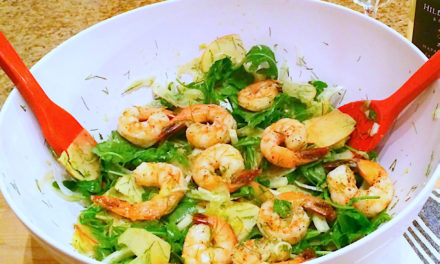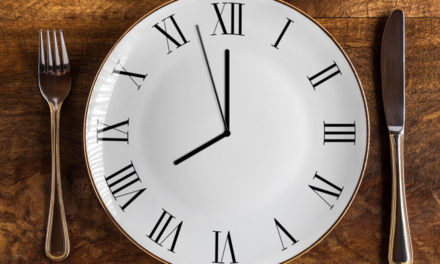By Martha Lee Anne Laret, MS, RDN, LDN
“Diet” has become a four-letter word in the minds of many consumers as they shun commercial weight loss programs. “‘Healthy eating’ has replaced ‘dieting,’” Marketdata LLC warned in their 2017 market analysis report.
The Wellness Industry Boom
As predicted, weight loss chains like Weight Watchers and Jenny Craig saw a 25% decrease in revenue between 2021 and 2023. Some 26,000 weight loss coaches lost work in 2020, and meal replacements/appetite suppressant sales dropped 14% in 2023, and are predicted to drop another 4.7% this year.
With consumers far too aware of dieting failure rates, their link with disordered eating, and their pesky habit of contributing to weight gain down the line, dieting is O-U-T. But with a little wardrobe change, diets have hit the streets again under the guise of “clean eating,” “detoxes,” and, of course, “optimal health.”
While the weight loss industry is predicted to hit $93.4 billion this year, with major income contributions being weight loss medications Ozempic and Wegovy, the Global Wellness Institute reported that the wellness industry is predicted to reach $7 trillion by 2025.
What is Wellness Culture?
In the field of weight-inclusive healthcare, “wellness” is synonymous with concepts like self-care, mental health, boundaries, balance, mindfulness, compassion, healthcare accessibility, and Intuitive Eating; however, this is not what you might find within “Wellness Culture” or the “Wellness Diet” as Christy Harrison, author of The Wellness Trap, calls it:
“Wellness culture is a set of values that equates wellness with moral goodness and posits certain behaviors — and a certain type of body — as the path to achieving that supposed rectitude.”
Unlike the diets of our mothers, the Wellness Diet doesn’t overtly demand that you “restrict” your caloric intake, “have a handful of almonds,” or go “fat-free,” which makes it harder to spot. Where the diet industry capitalized on weight loss equals better health, the wellness industry has capitalized on optimal health equals’ optimal weight, and then goes a step further to suggest that everyone can have health at any time if they would but apply themselves to their health minute by minute of every day. The Wellness Diet:
- Shifts focus from “weight” to “wellness,” yet emphasizes weight loss as evidence that the pinnacle of “optimal health” is being reached
- Eliminates foods or restricts food groups without a medical reason
- Inserts a sense of morality around foods eaten — emphasizes “whole” or “clean” foods, which can look like orthorexia
- Replaces conventional medicine with “natural healing” practices like using adaptogens, herbs, tonics, teas, cold plunging, sauna, red light therapy, earthing, etc.
- Always pushes health “betterment” or “optimization”
- Places responsibility upon the individual for their health
What Wellness Culture Shows Us About the Health of Healthcare
If we look through the smoke and mirrors of wellness culture to the heart of the consumer, we’ll find that most individuals are earnestly searching for answers to (and relief from) major healthcare concerns that have fallen between the cracks in a tug-of-war between the pro-diet and anti-diet healthcare systems.
In truth, traditional medicine rooted in weight-centric practices (at best) offers medication for symptom management or (at worst) recommends weight loss without consideration of medical history, the cause of sudden weight changes, or whether a recommendation for weight loss is sustainable or effective.
Weight bias and lack of weight/health education leads many providers to assume that weight is merely a reflection of personal choice, movement, or diet; yet many times, unusual and sudden weight shifts can be early warning of health concerns like Type II Diabetes, PCOS, thyroid disorders, cancer, depression, and eating disorders, etc.
On the other side of this healthcare tug-of-war are weight-neutral paradigms like the HAES movement and non-diet approach, which may hesitate to dig into weight changes or health concerns with functional and integrative practices as they are often associated with weight loss and diet culture.
Whether out of bias, uncertainty, or fear of bringing d-i-e-t into the room, the tug of war between diet and non-diet practitioners can create large gaps in healthcare assessment, diagnosis, and treatment, leaving individuals on their own to address upstream causes vs. downstream symptom management.
Finding the Gray
There is that place where the pendulum stops swinging from extreme to extreme, where non-diet providers and HAES advocates approach wellness in the gray. This is a place where we remember that some supplements, healthcare practices, and recommendations are not accessible to all people, that one wellness practice for one might be contraindicated for another, and that genetics and other factors outside of eating and exercise really do account for much of our health and weight.
Health is wonderful, but we aren’t guaranteed it, nor do we owe it to anyone. We can improve our health in “small practices” that we enjoy like enjoying regular meals in the day, slowing down on an afternoon walk, spending time with our loved ones, or even swapping out the phone with a book at bedtime.
Health considers the whole person’s wellbeing (mind, body, history, emotions, experience, culture, etc.) and does not get bogged down in a tug-of-war between weight-focus or behavior focus, but is empowered to explore both — with neutrality, compassion, and understanding of the many factors that contribute to both. When we consider the whole person, follow the downward stream of symptoms to upward concerns, stay attuned to our own personal or healthcare biases, and consider all of the accessible avenues to health — we have finally entered into the wellness conversation.
Remember: If it seems too good to be true, it probably is. If it feels like the only way to health or the only answer, it’s likely a wolf in sheep’s wool. If it asks you to forget your own intuition, preferences, history, and experience within your body, it might not really have you in mind at all. And, if you need support navigating it all, the Registered Dietitians at Memphis Nutrition Group are here to guide you.
Martha Lee Anne Laret, MS, RDN, LDN is a Nutrition Therapist at Memphis Nutrition Group, a nutrition and lifestyle counseling practice offering in-person and virtual nutrition therapy specializing in a non-diet, weight-neutral approach. Contact Memphis Nutrition Group at 901.343.6146 or visit MemphisNutritionGroup.com for more information.







